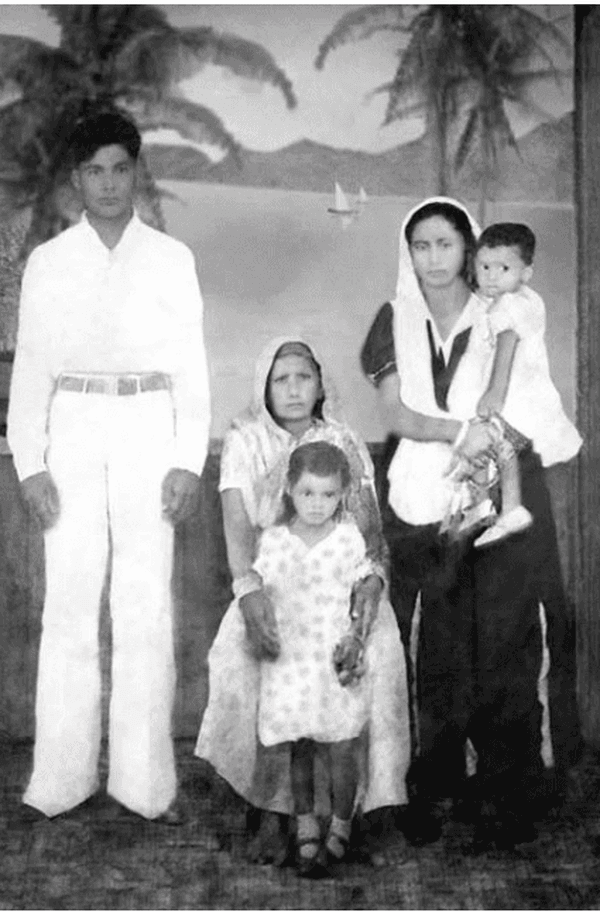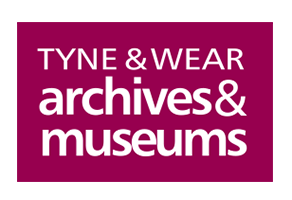Discussion with expert panel uncovers the North East’s connection to Indian Indentureship
13 July 2022
"This history remains largely untold so I’m looking forward to sharing my family history and my own experiences researching their lives".

A free event unveiling the North East’s untold connection to Indian Indentureship through a North East midwife’s family history and lived experiences will take place at Newcastle’s Discovery Museum on Sunday 17 July 2pm – 4pm in the Great Hall.
Meree Yaatra, Hamaaree Yaatra - My Journey, Our Journey is free, although booking is essential. People can attend in person at Discovery Museum or online.
Patricia Sudaishna Poinen (née Jhagroo) whose ancestors were Indian Indentured labourers, will share her family’s story. Pat is a Trinidadian born health professional in the UK with an extensive 43 year career in the NHS. Pat is also a race equality activist and represents on many community, cultural and faith boards in the North East of England.
Pat Poinen said:
“Both my maternal and paternal great grandparents boarded ships from Calcutta to seek new beginnings and to work on sugarcane plantations in Trinidad.
“Ships that transported Indentured Indians were built in the North East of England. This history remains largely untold so I’m looking forward to sharing my family history and my own experiences researching their lives. I am grateful for the support I received from Mr. Shamsu Deen, who has guided me and many more people on a similar journey.
“It is very important that these stories and this knowledge is being shared with a wider audience. Indentureship history increases our understanding of this time in the North East and the wider UK.”
[Pictured: the Jhagroo/ Adheen family: Pat Poinen's great grandmother, Rajanee, who left India at the age of 22 and travelled to Trinidad in 1900. Also pictured is one of her sons, his wife and her two grandchildren.]
“Family history and genealogy is important in understanding perceptions of self, family, community and history."
Indian Indentureship was a system of indentured servitude with more than two million Indian people transported as Indentured Labourers, or “girmityas”, to labour under bonded contractual agreements in British and European colonies. Following the formal end of enslavement in the British Empire in 1833, the British Indentureship system lasted from 1834 until the 1920s. This led to a global Indian diaspora in Africa, the Pacific and the Caribbean as well as other countries. This history remains largely untold, the impact on the lives of the Indian Indentured people and the North East's part in that system.
The event will highlight the ships Jumna and Ganges that were built in the North East in the late nineteenth century to transport Indian Indentured labourers, exploring the part the region’s shipbuilding industry played in British colonial history through Indentureship, its interconnection with the Industrial Revolution and following Enslavement.
Pat will be joined via video link by internationally renowned genealogist, researcher and writer, Mr Shamshu Deen, who facilitated the process of finding her ancestors.
During the event, Pat and Shamshu will talk about the process of uncovering her family's history, the challenges of her ancestors’ stories and what it means to her. Shamshu has spent a lifetime pioneering the research into the ancestry of people of Indian descent across its diaspora, including Trinidadians. He has helped over 300 families in Trinidad and India to trace and connect their Indian ancestral roots. Shamshu represented Indentureship history in Trinidad on UNESCO’s Memory of the World project and featured on the BBC’s Who Do You Think You Are? programme.
In this extract from his 1998 book ‘Lineages and Linkages: Solving Trinidad’s roots in India’ Shamshu Deen said:
“Family history and genealogy is important in understanding perceptions of self, family, community and history. It connects (one’s) past with (the) present. It confers greater understanding of identity and belonging.”
"Uncovering Indian Indentureship through the Exchange project will build on a very much unknown and overdue dimension of the North East of England’s histories and cultural identities"
The discussion event will be facilitated by Kath Boodhai, PhD Researcher, Department of Arts at Northumbria University. As well as having extensive experience of living and working in the North East cultural and Higher Education (HE) sectors, Kath Boodhai is of Indian Indentured ancestry with her research incorporating the subject. Kath will be in conversation with the speakers and will facilitate a Q & A with the audience.
Kath Boodhai said:
“Uncovering Indian Indentureship through the Exchange project will build on a very much unknown and overdue dimension of the North East of England’s histories and cultural identities. It adds to its richly mixed and complex interconnections with its Diasporas.”
The talk and panel discussion is part of the culmination of Exchange: Community-Led Collections Research at Tyne & Wear Archives & Museums (TWAM), to work with people from African, South Asian and Caribbean diaspora communities and organisations.
It is an Arts and Humanities Research Council (AHRC) funded pilot project by National Museums Scotland and National Maritime Museum, London. Museum staff have collaborated with the Exchange Steering Group, of which Pat and Kath are members, to co-produce the event.
Indian Indentureship is an area of research chosen by the group to address historical gaps, representation and interpretation and to give a fuller picture of the North East’s history and untold stories through objects in the museum collections. This event will focus on the interconnecting histories of Indian Indentureship in the North East, India and the Caribbean.


